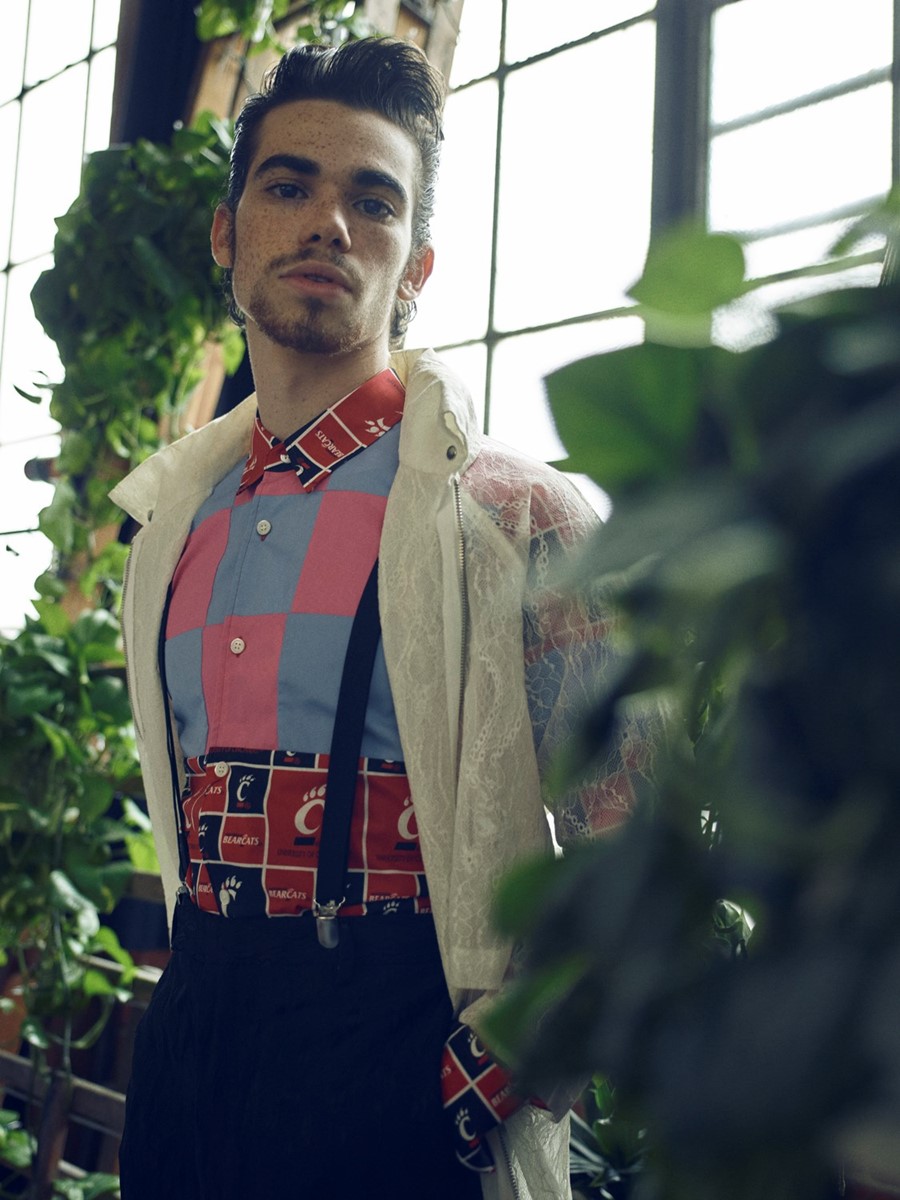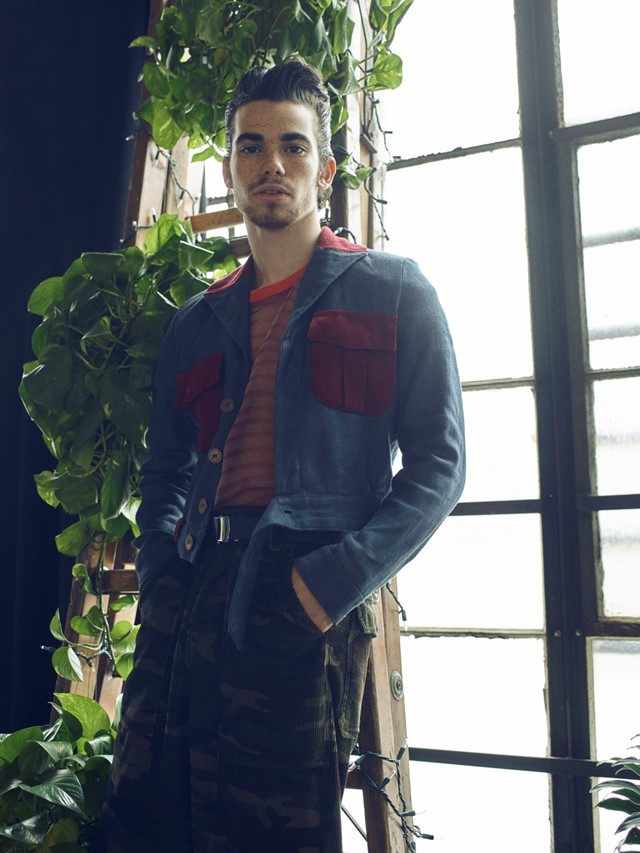Cameron Boyce’s Final Interview
- TextThomas Curry
In the wake of his tragic, unexpected death, Another Man publishes Cameron Boyce’s last interview in tribute to the mindful young Hollywood star
I wasn’t sure how to write Cameron Boyce’s final interview. It seems odd that someone who spoke with him so briefly should write something so intimate; to attempt to summarise his whole life, which was tragically and unexpectedly cut short earlier this month when he died in his sleep due to a seizure.
A rising star and social advocate with legions of young fans, when I asked him about his biggest influences growing up, Cameron told me about his grandmother and how hearing stories from her childhood had informed his understanding of race in America. A 14-year-old student who – in the Autumn of 1956 – became a civil rights pioneer, Jo Ann Boyce and 11 other black teenagers made history when they decided to attend a previously all-white high-school in Clinton, Tennessee. “I think she underestimates how much it changed the world,” he said. “I don’t think she gives enough credit for that.”
“As a kid it’s sort of hard to grasp the full weight of that story,” he continued. “Every time in school I could write about something, I would always choose her. It was always about her. She was so obviously magnetic, and so obviously cherished by everyone.”
He recalled attending a reunion for the Clinton 12, along with some 500 other guests, watching as one by one people paid their respects to her. “Everyone came up to my Nana and they all had something to say to her,” he said. “They all thanked her, they all wanted to hear her speak and talk about some of her experiences. I realised, wow, I thought she was cool but she’s way more than that.”
His mother, too, was integral to shaping his understanding of the world and his role in it. “My mum literally drives into Skid Row every day and manages teams that are assembled to walk around and engage with usually chronically homeless people and try to get them into permanent housing. My mum is a total go-getter. She tells me all the time, why haven’t you done this already? I know you’re passionate about it. I’m like, yeah you’re right, I should do that.”
It’s an impulse that led him to get involved with the Thirst Project, a charity set up by college students in Southern California which educates children around the US about the global water crisis, raising funds for clean water programmes in Africa, India and Central America.

“They started a foundation and now they’re building wells,” he said. “It’s super cool. We always make so many excuses for ourselves – I’m so busy, I’m so tired, I don’t want to do it. You know? I’m passionate about it, but I’m not going to be the person that changes things. Why do we tell ourselves that? We totally could. There are so many people who are making so much change just because they’re passionate. Because they read up on it and go out there and do it.”
It’s a level of optimism and agency that’s perhaps unexpected in our current political climate, but one which makes more sense if you’ve grown up with quite literally millions of Disney fans following your every post, hanging on every caption. “As I grow up, and knowing that the people who I’m reaching are so young, it for sure changes my perspective on how I want to be perceived,” he said. “When working with Make-A-Wish, I’ll spend the day with a nine-year-old girl who’s struggling with an auto-immune disease. She’s so full of life, she’s super excited to see me and wants to talk about the roles I’ve played on the Disney Channel. Those kids definitely change your view of how important it is to be someone who says the right things and has that passion for making the world a little bit better.”
This task would be daunting for anyone, let alone someone who’d only just reached adulthood themselves. “There have been a couple of times where I’ve been like, wow, these people actually really care about my opinion, that’s crazy. For me, it’s one of those things where, as long as I’m in a space where I can control it. That feels more manageable. As long as it’s not a million people!”
While it doesn’t yet have a release date, Runt will be Cameron’s final film. The indie movie tells the story of a vulnerable kid who grows up with a distant mother, an absent father and no meaningful role models to help steer him through his difficult childhood. “There are so many moments in this film where something happens that could have been so easily avoided if there were an adult figure, someone who stepped in and said something,” he said. “It’s not just my character, all of these kids have to deal with things they should never have to deal with on their own.”
It’s a film that perhaps speaks to the legacy Cameron will leave for many of his fans. He was an actor, yes, but a role model – in the truest sense of the term – too, and someone who brought a much-needed sense of mindfulness to Hollywood. Acutely aware of the platform he’d be given, and the responsibility that came with it, he represented a new breed of smart, socially conscious celebrity.
“To me the most interesting films are the ones that are placed in front of you,” he said, nearing the end of our call. “They’re not shoved down your throat. Does that make sense? I’m not trying to shove this message down the audience’s throat. I want people to empathise. Those are the movies I enjoy the most.”
Head here to donate to The Cameron Boyce Foundation, which exists to honour his legacy, and continue advocating and providing resources for all of the organisations and causes that were dear to him.












